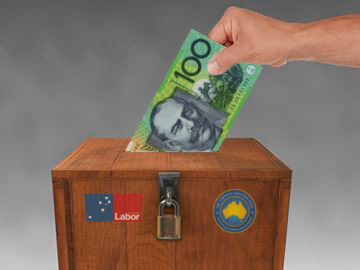SA plans donation ban
 SA Premier Peter Malinauskas has proposed a complete ban on political donations.
SA Premier Peter Malinauskas has proposed a complete ban on political donations.
The premier has announced a new bill that he describes as a pioneering move towards ending the influence of money in politics.
The proposed legislation would prohibit donations and gifts to registered political parties, members of parliament, and candidates.
Instead, the state will provide financial support to enable parties and candidates to participate in elections, run campaigns, and promote their political platforms.
Malinauskas said the bill places South Australia on the “cusp of becoming a world leader in ending the nexus between money and political power”.
“We want money out of politics. We know this is not easy. These reforms may well face legal challenge,” he said.
“But we are determined to deliver them, with this bill to be introduced in the parliament in the near future.”
The premier also called on state and federal leaders to consider similar measures, suggesting that “democracies everywhere should be pursuing” this approach.
To support new political parties and independent candidates, the South Australian bill allows for donations up to $2,700, while maintaining campaign spending caps of $100,000 per candidate, with a party maximum of $500,000.
If enacted, registered political parties will receive a one-off payment of $200,000 before 31 August 2026, and additional operational funding calculated as the lesser of $700,000 or $47,000 multiplied by the number of party members in parliament. Membership fees would be capped at $100 per year.
Penalties for breaching the new laws include a maximum fine of $50,000 or ten years' imprisonment.
The Premier says that while the reform would increase the cost of the electoral system, tightening expenditure and registration rules would mitigate these expenses.
The push for electoral reform extends beyond South Australia. The Albanese government faces pressure from crossbench MPs to implement reforms before the next federal election.








 Print
Print